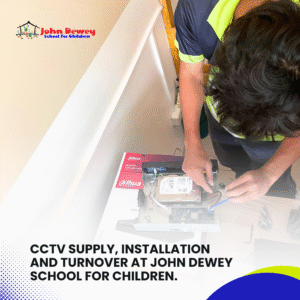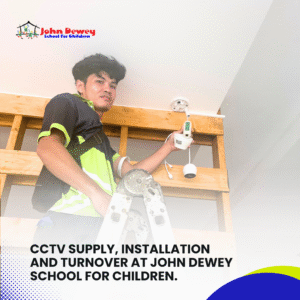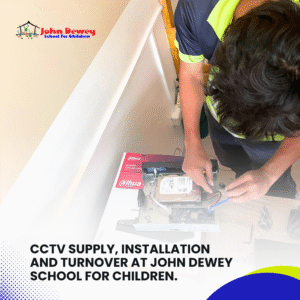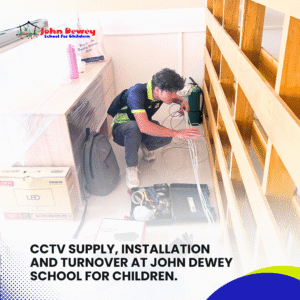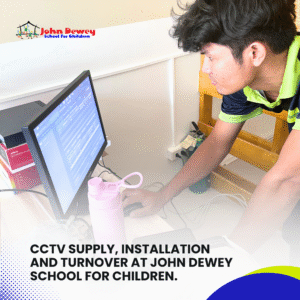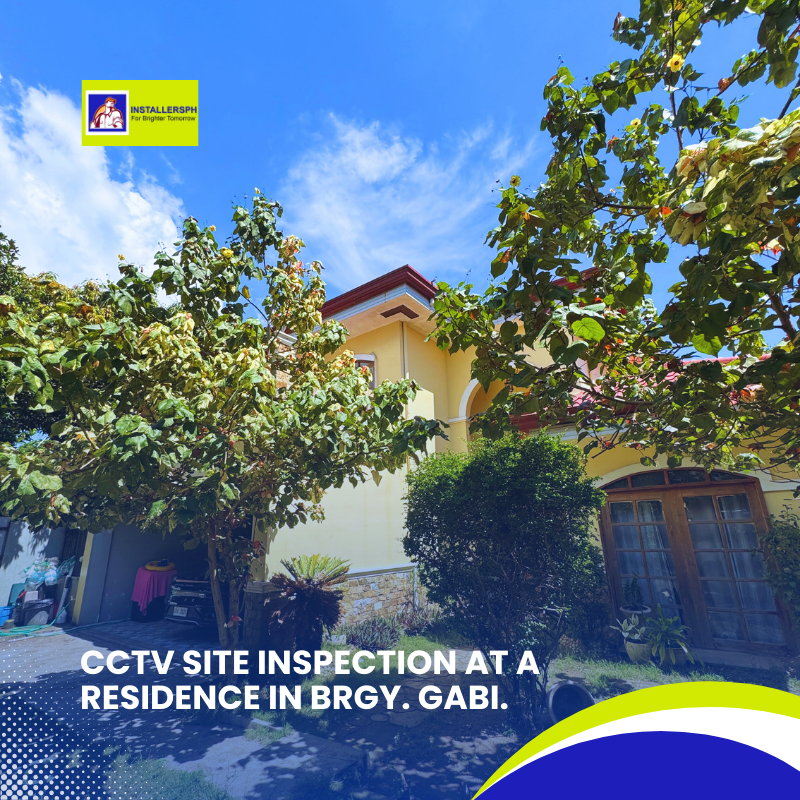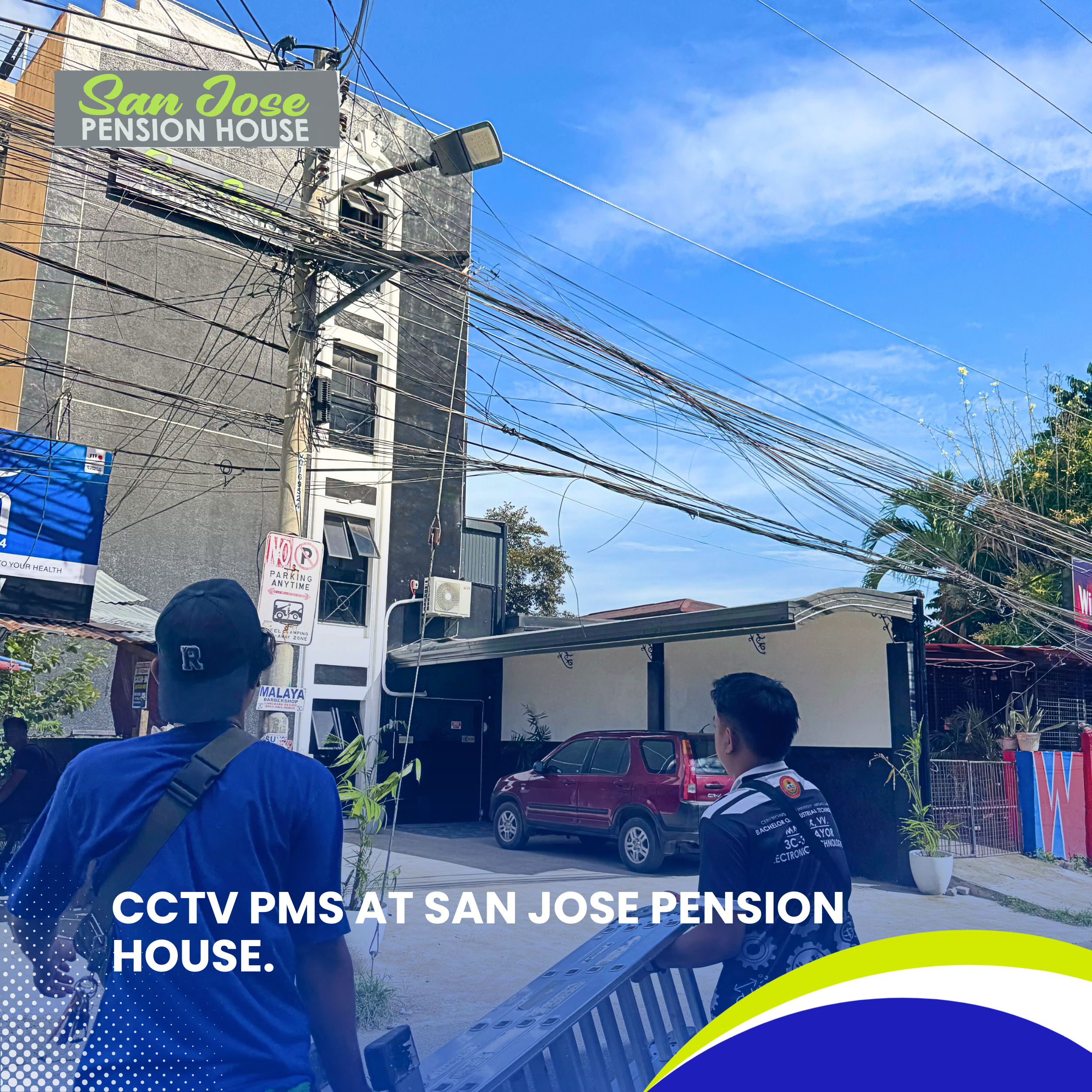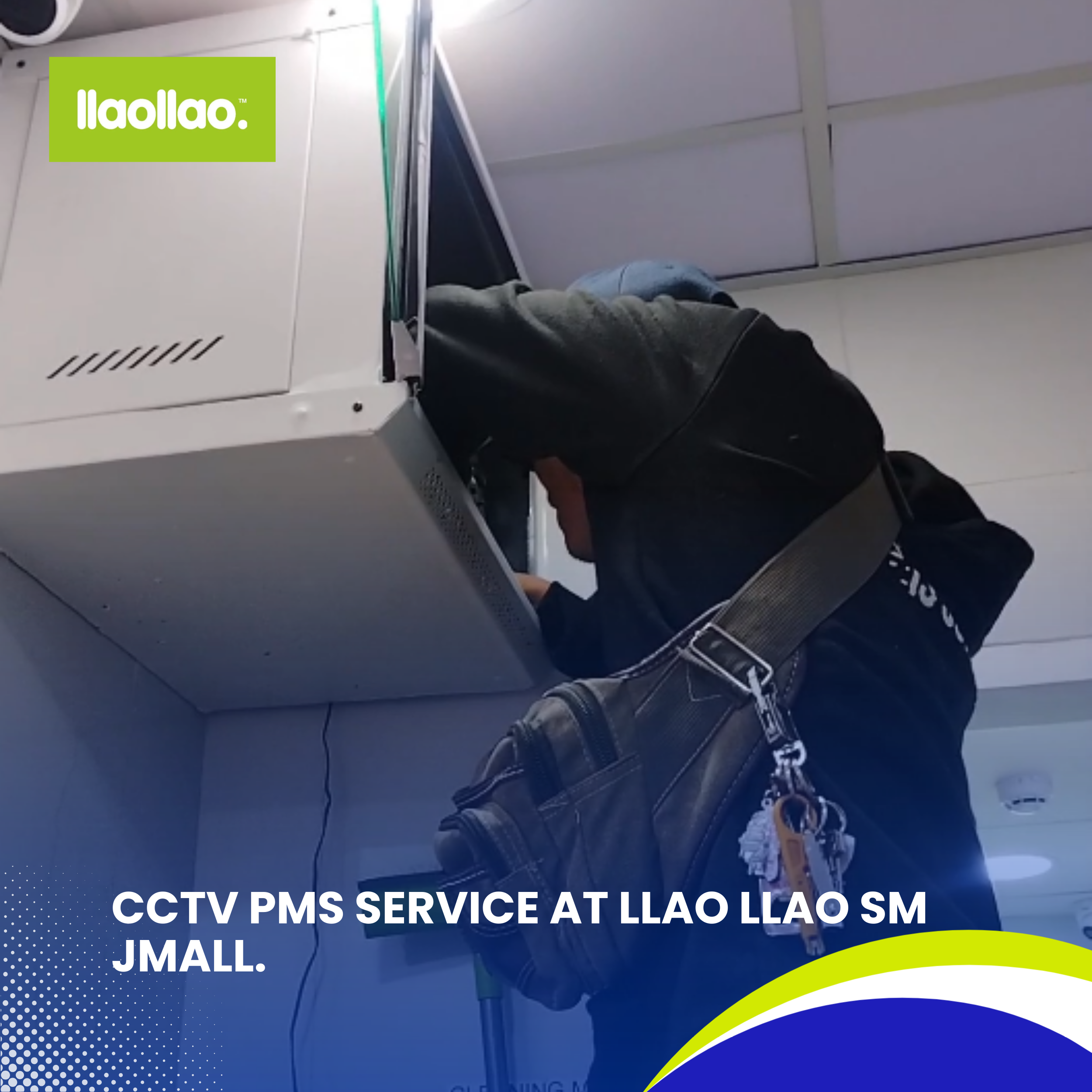CCTV Site Inspection at a Residence in Brgy. Gabi. Introduction. On February 26, 2026, our technical team conducted a detailed site inspection at a residential property in Barangay Gabi, Cordova, Lapu-Lapu City …
CCTV Supply, Installation & Turnover at John Dewey School for Children -- Full Report (Completed in 2 days).
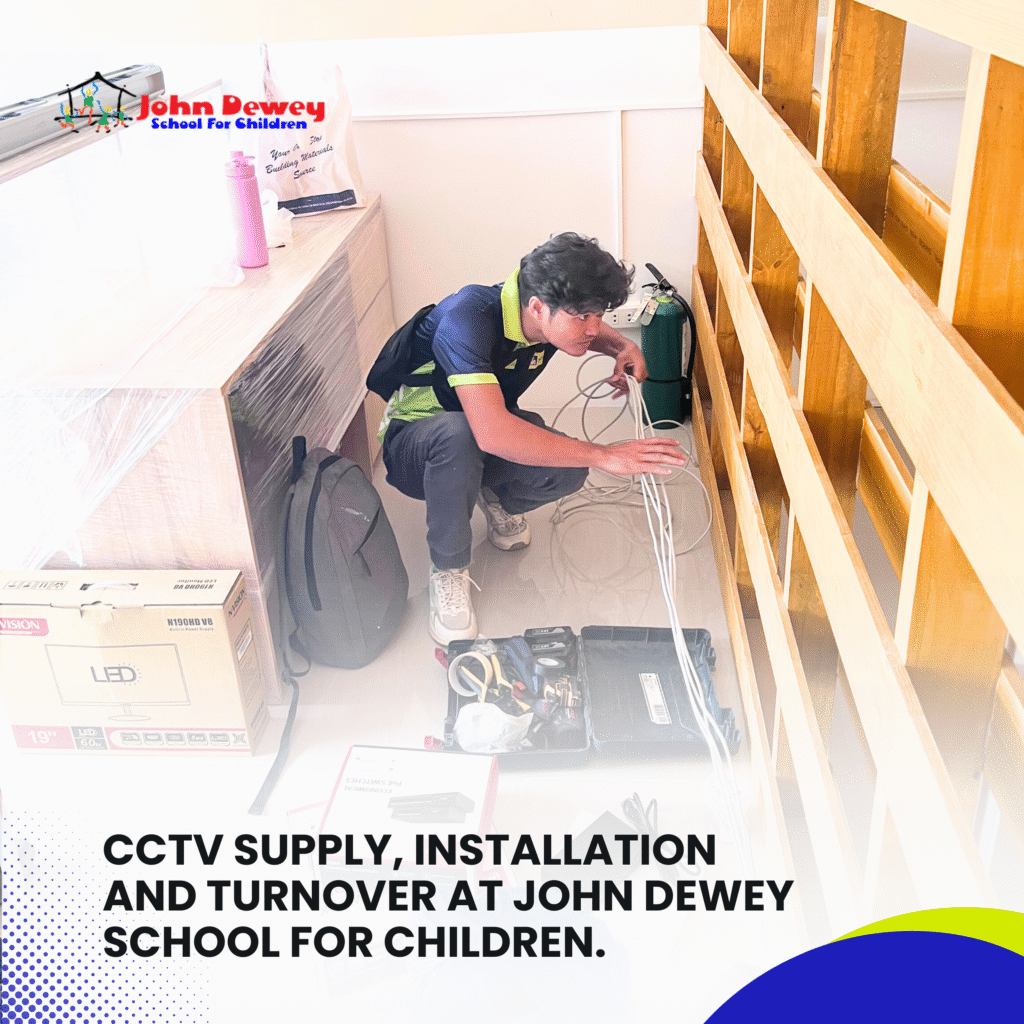
Introduction
In today’s academic environments, the safety and security of students, staff, and facilities remain a top concern for educational institutions. John Dewey School for Children. has taken a proactive step to address this priority by investing in a modern CCTV surveillance system. In pursuit of this goal, the school partnered with our team to deliver a fast-track, comprehensive CCTV supply and installation project.
The implementation was successfully completed in just two working days, thanks to precise planning, resource efficiency, and close coordination with school administrators. This article presents a detailed overview of the work completed during the two-day deployment, with a breakdown of methodologies used, standards adhered to, and the institutional value achieved.
Explainer Video
Project Timeline and Milestones.
Day 1:
Full-site structured cabling using surface-mounted moldings
Installation of four high-definition CCTV cameras in a rectangular key room
System integration setup using CAT6 and PoE standards
Day 2:
Full system testing and verification
Optimization and alignment of CCTV coverage
Formal turnover and demonstration to school officials
The rapid execution of this project was made possible through experience-driven project management, child-safe installation techniques, and the use of reliable materials specifically selected for academic environments.
Day 1 – Structured Cabling and Camera Installation.
1. Site Assessment and Layout Planning
Before installation began, a preliminary assessment was conducted to review the target coverage area—a rectangular room considered essential for early-stage monitoring. Key objectives were identified:
Full coverage of entry/exit points
Surveillance of high-traffic and activity-prone areas
Visibility of blind spots
Minimal disruption to school operations
Our team mapped the camera placements and cable pathways to ensure efficient routing, compliance with safety protocols, and aesthetic harmony with the school’s architecture.
2. Structured Cabling Using Moldings
To protect cables and preserve the school’s interior, we implemented structured cabling through PVC surface moldings rather than open or invasive wiring. This solution meets both functional and aesthetic expectations for educational settings.
a. Adhesive-Based Installation (No Drilling Required)
Moldings were installed using “No More Nails” industrial adhesive—a powerful, residue-free solution that avoids the need for wall penetration. This approach:
Prevents damage to the building structure
Reduces noise and dust
Allows future removal without surface impact
b. CAT6 Cabling Deployment
We selected CAT6 Ethernet cables for their high bandwidth, reliability, and performance over extended distances. Each cable was:
Threaded securely through moldings
Labeled at both ends for serviceability
Tested for physical integrity before use
The cables were run with care to avoid any kinks or sharp bends, maintaining proper bend radius and slack at connection points to ensure signal strength and stability.
3. CCTV Camera Mounting and Connection
With cable pathways completed, the team installed four CCTV dome cameras, each providing high-definition video feed. These units were positioned to cover:
Entry doors
Classroom activity zones
Corners vulnerable to blind spots
Hallway junctions
Power Over Ethernet (PoE) Setup
All cameras were connected using PoE technology, which integrates data and power transmission over a single CAT6 cable. This method reduces the number of wires, improves reliability, and allows flexible camera placement.
Mounting was done with tamper-resistant fasteners and enclosed cabling, ensuring the system met both child-safety and tamper-resistance standards.
Day 1 Wrap-Up.
By end of Day 1, the team had completed the structured cabling, securely mounted all four CCTV cameras, and connected the system to the school’s local network. Surface moldings were reinforced for durability, and all visible work areas were cleaned, maintaining a professional and orderly environment.
Day 2 – System Testing, Optimization, and Turnover.
With the physical installation completed, Day 2 focused on technical validation, alignment, and system handover. Our goal was to ensure the system performed exactly as intended; offering seamless video feeds, proper data storage, and accessible real-time viewing.
1. Full System Testing
A comprehensive functionality test was conducted to evaluate every installed component. This included:
Signal Integrity Testing: Ensured stable and high-quality video transmission from each camera
Storage Integration Check: Verified recording capability with the NVR (Network Video Recorder)
Latency Tests: Confirmed low-latency, real-time feed with no signal interruptions
Camera angles were adjusted during this process to optimize field of view and eliminate any visual obstructions.
2. System Calibration and Network Configuration
Each camera was configured with IP addressing for integration into the school’s private network. Customizations included:
Camera naming for easy identification
Recording schedules based on school operating hours
Alerts and monitoring preferences set with admin-level permissions
Login credentials and system access rights were configured to ensure only authorized personnel could manage or review the footage.
3. Staff Orientation and Turnover
Once the system was optimized, a live demonstration and training session was conducted for designated school personnel. Topics covered:
Real-time Viewing: How to access live feeds from each camera
Playback & Archiving: Instructions for reviewing recorded footage
System Maintenance: How to check camera statuses and perform minor checks
Special Features and Safety Compliance.
Throughout the two-day project, all procedures were aligned with child safety and building compliance standards.
Child-Safe Practices Implemented
No exposed wiring or cable loops
Moldings secured tightly to prevent tampering
Camera mounts positioned out of children’s reach
Smooth molding edges to prevent injury
Regulatory Compliance Met
Adherence to DepEd safety guidelines for ICT installations
Compliance with electrical code standards
Conformity with data privacy policies for CCTV deployment
These considerations ensure the system not only performs reliably but also aligns with the institution’s duty of care.
Value Delivered to John Dewey School.
By completing the project in just two days, the school immediately benefited from:
1. Immediate Surveillance Capability
The cameras are now actively monitoring the assigned room, offering protection during school hours and after-hours scenarios.
2. Neat, Professional Finish
All raceways blend naturally into existing walls and ceilings, leaving no unsightly cables. The adhesive-based setup prevented structural damage while ensuring long-term durability.
3. Expandability
The CAT6 infrastructure allows for future addition of cameras in adjacent areas without redoing the entire cabling. This modularity supports the school’s long-term planning.
4. Ease of Use
With admin staff trained in just one session, the school can now manage and operate the system independently.
Project Management Summary.
The success of this rapid deployment lies in our adherence to strict project management principles:
Clear Scope Definition: Precise expectations and areas of focus
Resource Allocation: Sufficient manpower and equipment to meet 2-day goal
Minimal Disruption Policy: Non-invasive techniques maintained school integrity
Safety First: Implementation aligned with the school’s child protection standards
This project model showcases how surveillance systems can be installed efficiently and professionally without compromising quality or operational continuity.
Conclusion
The CCTV supply and installation at John Dewey School for Children. represents a benchmark project that combines speed, safety, and strategic foresight. In just two days, the school transitioned from having no video surveillance in a key area to operating a fully functional CCTV system; with secure cabling, reliable cameras, and trained personnel ready to use it.
This deployment reflects our team’s dedication to educational partnerships and our capacity to deliver tailored security solutions without delay. As we look ahead to the next phase, we remain committed to supporting John Dewey School in creating a safer, smarter learning environment for every student and educator.
Case Studies
CCTV PMS at San Jose Pension House.
CCTV PMS at San Jose Pension House. Introduction. Maintaining a reliable security infrastructure is a cornerstone of guest safety and operational integrity in the hospitality industry. On February 25, 2026, our technical …
CCTV PMS Service at Llao Llao SM JMall.
CCTV PMS Service at Llao Llao SM JMall. Introduction. Security plays a vital role in maintaining smooth business operations, especially in high-traffic commercial spaces. On February 23, 2026, our team conducted a …

